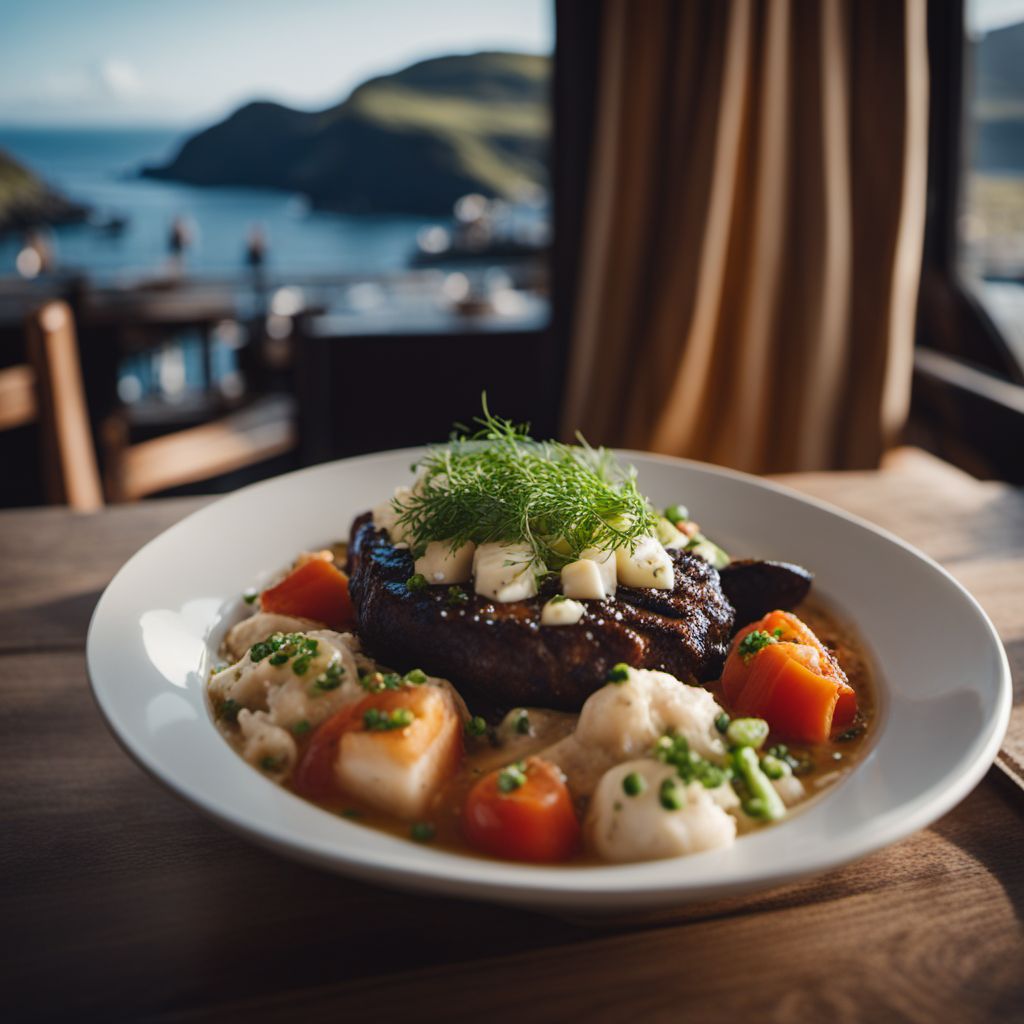
Cuisine
Faroese cuisine
Faroese cuisine is known for its simplicity and use of fresh, local ingredients. The cuisine is heavily influenced by the island's harsh climate and rugged terrain, which limits the availability of certain ingredients. Fish is a staple of the Faroese diet, with many traditional dishes featuring cod, haddock, and salmon. Lamb is also a popular ingredient, often prepared in stews or roasted. Seabirds, such as puffins and guillemots, are also a traditional part of the Faroese diet, although their consumption has become controversial in recent years due to concerns about overfishing and animal welfare.
Typical ingredients
Fish (cod, haddock, salmon), Lamb, Potatoes, Carrots, Turnips, Onions, Rhubarb, Oats, Barley
Presentation and garnishing
Faroese dishes are often served simply, with minimal garnishes or sauces. However, some dishes, such as ræst kjøt, are traditionally served with boiled potatoes and turnips.
The Faroe Islands are home to a number of unique ingredients, including skerpikjøt (dried mutton) and ræst kjøt (fermented lamb). The island's harsh climate and rugged terrain have also led to the development of unique cooking techniques, such as drying and fermenting.
More cuisines from this region...
History
Faroese cuisine has a long history, dating back to the island's Viking settlers. The cuisine has evolved over time, with influences from Denmark and Norway. Traditional Faroese dishes include ræst kjøt (fermented lamb), skerpikjøt (dried mutton), and grind og spik (pilot whale meat and blubber).
Cultural significance
Faroese cuisine is an important part of the island's cultural heritage, and is celebrated at festivals and events throughout the year. The cuisine is also an important part of the island's tourism industry, with many visitors coming to the Faroe Islands to sample traditional dishes and learn about the island's culinary traditions.
Health benefits and considerations
Faroese cuisine is generally considered to be healthy, as it is based on fresh, local ingredients. However, some traditional dishes, such as skerpikjøt, are high in salt and fat. The consumption of pilot whale meat and blubber has also been linked to high levels of mercury and other contaminants.
Faroese cuisine recipes Browse all »

Faroese-Style Lýður Burger
Oceanic Delight: Faroese-Style Lýður Burger
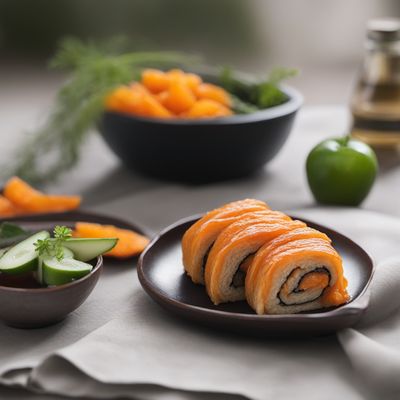
Faroese Mandarin Roll
Savory Faroese Delight: Mandarin Roll with a Nordic Twist

Faroese-Style Katuk Soup
Oceanic Delight: Faroese-Style Katuk Soup

Faroese-style Pan-Fried Zucchini
Savor the Flavors of the Faroe Islands with Pan-Fried Zucchini

Faroese-style Bacon Pie
Savory Delight: Faroese Bacon Pie
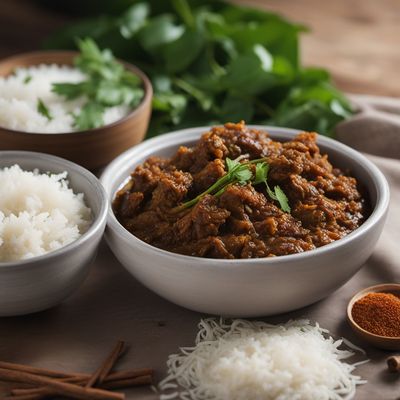
Faroese-Inspired Slow-Cooked Lamb Rendang
Hearty Faroese Lamb Rendang: A Fusion of Flavors
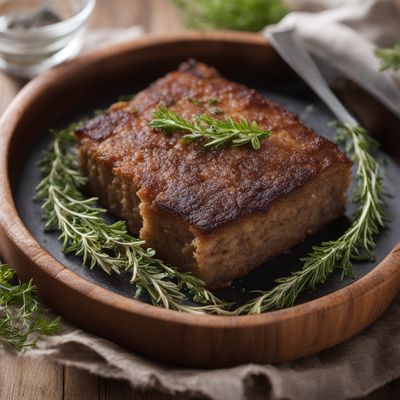
Faroese Potato Cake
Savory Delight: Faroese Potato Cake with a Twist

Faroese-style Steamed Dumplings
Oceanic Delights: Faroese Seafood Steamed Dumplings
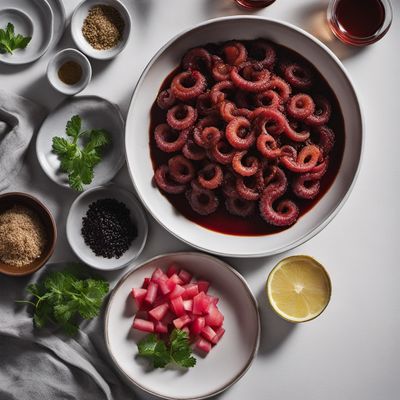
Faroese-style Octopus Fillets
Oceanic Delight: Faroese-style Octopus Fillets

Faroese Seafood Ravioli
Oceanic Delight: Faroese Seafood Ravioli

Faroese Seafood Soup
Oceanic Delight: Faroese Seafood Soup

Faroese Grilled Lamb Tacos
Smokey Lamb Tacos with a Faroese Twist